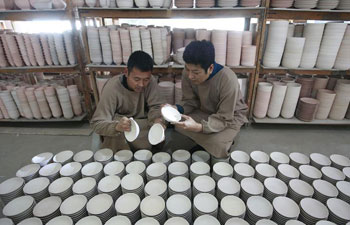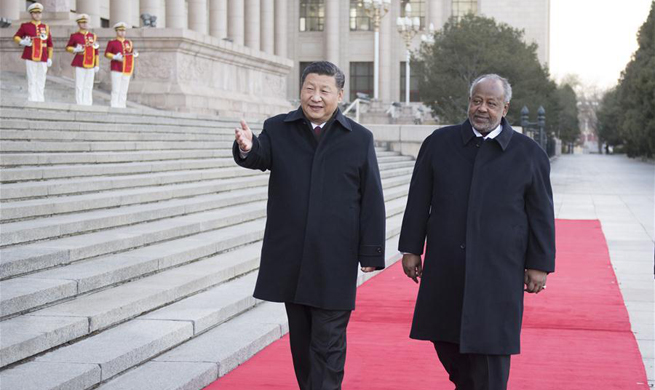by Eric J. Lyman
ROME, Nov. 23 (Xinhua) -- Positive economic signals continue to trickle in for Italy, but most analysts say a full-blown economic recovery will likely remain elusive.
In the latest figures released, the Bank of Italy this week predicted the Italian recovery would grow 1.5 percent this year, more or less in line with expectations from other groups including the International Monetary Fund, the European Central Bank, and the World Bank. Most estimates are now that the Italian economy will grow either 1.5 or 1.6 percent this year.
Additionally, consumer confidence, exports, and industrial production are all on the rise. But commentators told Xinhua that it was notable Italy's economic growth still trailed that of the European Union as a whole -- as it has for 13 of the last 14 years.
"Italy's growth this year seems relatively strong at 1.5 percent compared to last year," Fedele De Novellis, an analyst with REF Ricerche, a private research group, told Xinhua. "But if you exclude Italy from European Union calculations the EU will grow 2.5 percent this year."
De Novellis continued: "When the EU economy grows strongly, Italy does well but a little less well than the EU," he said. "When the EU economy fails to grow, Italy does a little worse off than the EU does overall."
Veronica De Romanis, an economist with Rome's LUISS University, agreed, telling Xinhua that Italy continues to be dogged by a lack of structural reforms and high levels of debt, something which leaves the economy less competitive.
"Italy lacks the structural reforms necessary and is too weighted down with debt to take full advantage of circumstances," De Romanis said. "Right now, many things are lining up for Italy: other EU economies are growing, oil is cheap, demand for exports is on the rise. And yet the economy is still going to grow just 1.5 percent."
De Romanis said that Italy's public sector must be reformed, along with further modernization of the labor markets, better tax compliance, and incentives for research and development.
But the notion of looking at Italy as an entity with national problems requiring uniform national solutions is also outdated, according to Valerio De Molli, managing partner for The European House-Ambrosetti, a Milan-based think tank.
"It is wrong to think of the economic problems of Italy," De Molli told Xinhua. "We should be thinking of Italy, in plural. When we think of the country's macroeconomic indicators what we are talking about is the fusion of numbers that don't really add up, merging the realities of a vibrant economy in the north with the slow growing south."
While every country has rich and poor areas, De Molli said the gap between the most and least developed regions is particularly acute in Italy.
"The difference in wealth between the poorest euro-zone country, Greece, and the richest, Luxembourg, is smaller than the economic gap between Italy's poorest region, Reggio Calabria, and the richest region, Bolzano," De Molli said.
De Molli said that any prescription to improve the country's economic situation should be tailor-made to reflect specific needs and challenges of different regions.

















